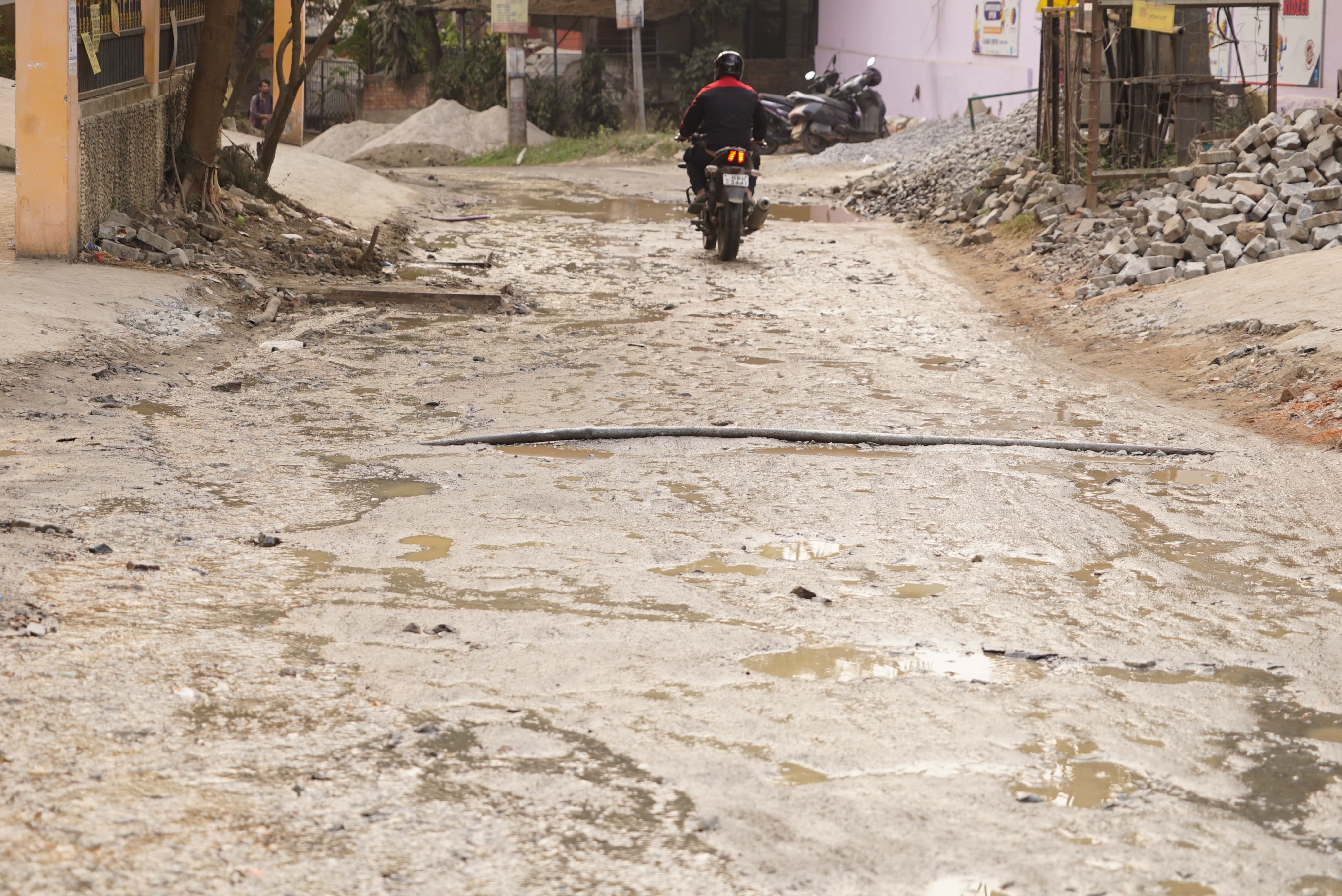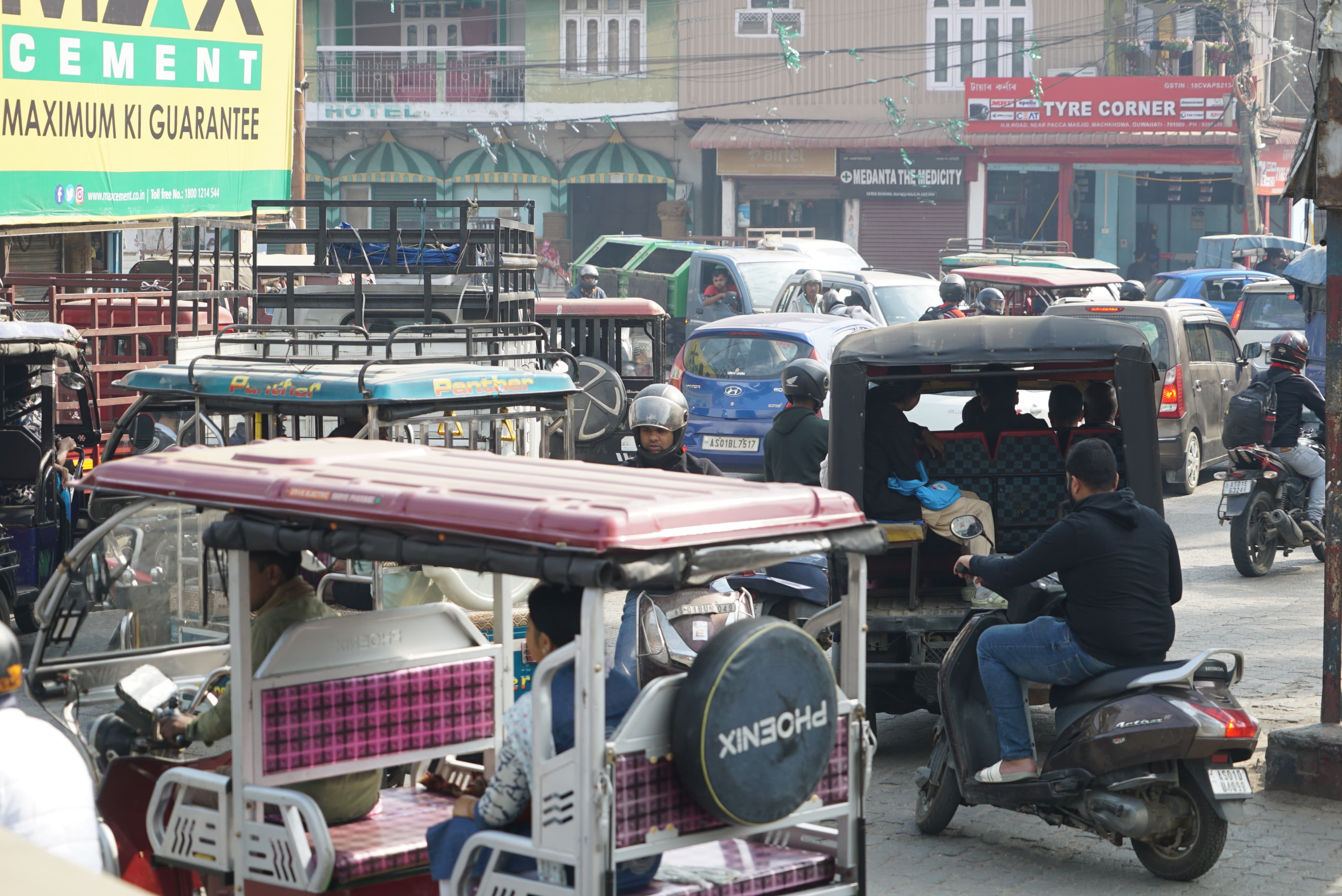Spinal injuries, rising vehicle maintenance costs, and mental health issues reflect a growing commuter crisis
Imagine riding your bike through the busy Paltan Bazaar–Dharapur route during peak hours. As traffic slows to a crawl, you slam the brakes to avoid a pothole. A sharp pain shoots through your back. But there's no time to stop — you're stuck in the middle of the road, surrounded by traffic.
This isn’t an occasional inconvenience — it’s a daily reality for thousands of bikers in Guwahati, where poor road conditions, heavy traffic, and unchecked urban development are making commutes painful, stressful, and expensive.
ALSO READ: Lack Of Coordination Among Agencies Holds Guwahati Piped Gas Project To Ransom
For office-goers and daily commuters in Guwahati, the dream of a smooth ride to work has become a nightmare. Roads riddled with potholes, unfinished flyovers, and relentless traffic jams turn each journey into a physical endurance test.
“I ride to work every day, and I dread it,” says Nayan Sharma, a professional working in Ganeshguri. “The back pain, the constant stopping and starting — it’s exhausting. By the time I reach work, I’m already mentally tired.”
Dr. Anish Agarwal, an orthopedic surgeon in the city, confirms a surge in patients suffering from spine-related injuries caused by poor riding conditions.
“There are many factors involved,” says Dr. Agarwal. “The posture required for sports bikes — which many youngsters use — can cause serious spinal strain over time. Combine that with terrible roads and constant braking, and injuries are bound to happen.”
According to him, the problem is more serious in riders over 50, who are at risk of spine fractures, dislocations, and chronic back pain. “One of my patients in his 50s came in with a spine fracture — just from daily riding on these roads,” he recalls.
Manish Kumar, a delivery agent from Kalapahar, shares his everyday experience:
“I travel all over the city to deliver parcels. The roads in Hatigaon and Bamunimaidam are the worst. And because of the ongoing flyover construction, traffic jams are worse than ever. I have back pain every day. But I have no choice.”
Manish also points to the mental stress of his job. “We work on tight deadlines. Sometimes customers yell if we’re late, but how do we explain the traffic and roads? It’s mentally draining.”

Physical pain is just one part of the problem — the psychological strain is equally significant.
“It’s frustrating,” says Dr. Agarwal. “People get stuck in traffic, they’re late to work or appointments, and they start their day already anxious. Over time, it affects mental health and even personal relationships.”
Dr. Agarwal himself isn’t immune to the situation. “I travel from my home to my clinic in Bhangagarh every day. I’ve been stuck in jams while patients waited, calling me constantly. It’s very stressful.”
Even for those not experiencing physical pain, their vehicles bear the brunt of Guwahati’s roads.
Asish Bora, a shopkeeper from Maligaon, recalls a frightening incident. “My bike’s brake cables snapped due to constant wear and tear. I was lucky to avoid a serious accident. Repairs cost me a lot, and garage owners charge whatever they want — there’s no regulation.”
Mintu, a garage owner in Maligaon, confirms the surge in bike damage. “Earlier, we got maybe 2-3 bikes a day with brake or suspension issues. Now, we see 10 to 15 — even more when it rains. Poor road conditions mean more wear and tear, and bikes also burn more fuel because of all the braking.”
He warns that without better infrastructure, things will only get worse. “Bikes need more servicing, and people are spending a lot more now just to keep them running.”
Guwahati’s rapid urban growth hasn’t been matched with adequate infrastructure planning. Roads are left unrepaired, new flyovers stall for years, and traffic management remains chaotic. While development is essential, the lack of road maintenance and regulation is becoming a public health concern.

Proper infrastructure, well-maintained roads, and efficient traffic systems could significantly reduce health risks, mental stress, and vehicle damage. Until then, commuters continue to pay a steep price — not just in rupees, but in health and peace of mind.
From working professionals to delivery agents and shopkeepers, the frustration is universal. Whether it’s back pain, expensive repairs, or rising stress levels — the message from the people of Guwahati is clear: the roads are hurting more than just vehicles.
The city’s development must prioritise its people. Without immediate action to improve road quality and traffic conditions, each journey remains a hazard — one brake, one pothole, one crisis at a time.



